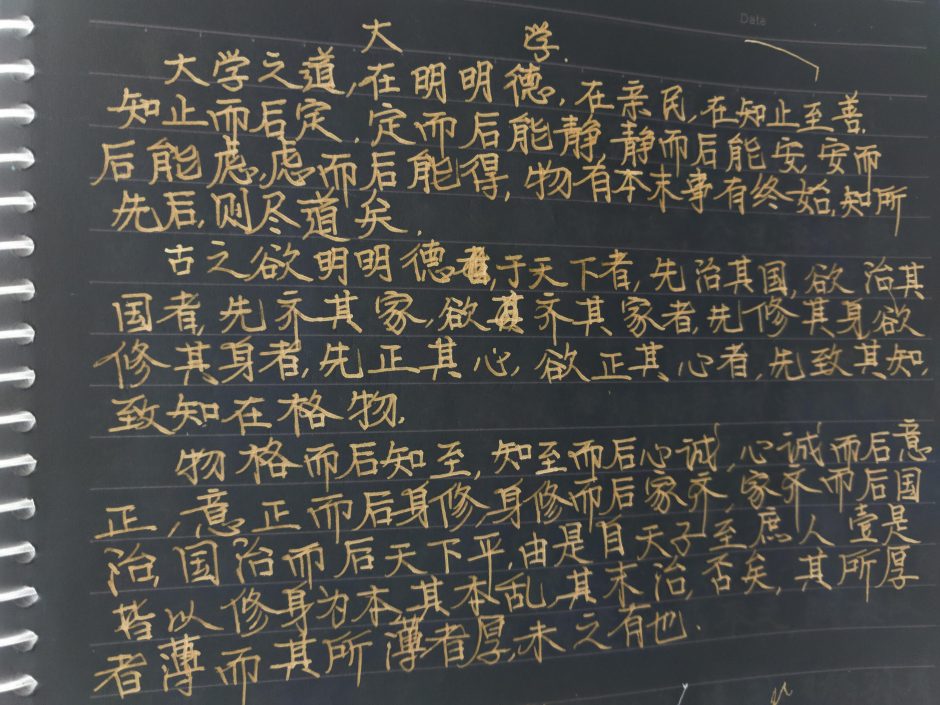http://poj.org/problem?id=1150
#include<iostream>
#include<cstring>
#include<cmath>
using namespace std;
int get2(int n)//计算n!中质因子2的出现次数
{
if(n==0)
return 0;
return n/2+get2(n/2);
}
int get5(int n)//计算n!中质因子5的出现次数
{
if(n==0)
return 0;
return n/5+get5(n/5);
}
//////////////////////////////////////////////////////////////////////////
int g(int n,int x)//计算f(1) to f(n) 中,奇数数列中末尾为x的数出现的次数
{
if(n==0)
return 0;
return n/10+(n%10>=x)+g(n/5,x);
}
int getx(int n,int x)//计算f(1) to f(n)中,末尾为x的数的出现次数
{
if(n==0)
return 0;
return getx(n/2,x)+g(n,x);
}
//////////////////////////////////////////////////////////////////////////
int table[4][4] =
{
6,2,4,8,//2^n%10的循环节,注意如果2的个数为0时候,结果应该是1,要特殊处理。
1,3,9,7,//3
1,7,9,3,//7
1,9,1,9,//9
};//3,7,9的循环节中第一位,刚好是1,故不需要考虑这些数字出现次数为0的情况。
int main()
{
int n,m;
int num2;
int num3;
int num5;
int num7;
int num9;
while(scanf("%d%d",&n,&m)!=EOF)
{
num2=get2(n)-get2(n-m);
num5=get5(n)-get5(n-m);
num3=getx(n,3)-getx(n-m,3);
num7=getx(n,7)-getx(n-m,7);
num9=getx(n,9)-getx(n-m,9);
int res=1;
if(num5>num2)
{
printf("5n");
continue;
}
else
{
if(num2!=num5)
{
res*=table[0][(num2-num5)%4];
res%=10;
}//如果num2==num5,那么2^0次方mod 10应该为1 ,而不是table中的6,所以要特殊处理。
res*=table[1][num3%4];
res%=10;
res*=table[2][num7%4];
res%=10;
res*=table[3][num9%4];
res%=10;
}
printf("%dn",res);
}
return 0;
}
Meta
-
Recent Posts
Recent Comments
Archives
- May 2024
- April 2023
- February 2023
- January 2023
- December 2022
- November 2022
- September 2022
- June 2022
- July 2021
- January 2021
- February 2020
- September 2019
- March 2018
- February 2018
- August 2016
- July 2016
- June 2016
- May 2016
- April 2016
- March 2016
- February 2016
- January 2016
- December 2015
- November 2015
- October 2015
- September 2015
- August 2015
- July 2015
- June 2015
- May 2015
- April 2015
- March 2015
- February 2015
- January 2015
- December 2014
- November 2014
- October 2014
- September 2014
- August 2014
- July 2014
- June 2014
- May 2014
- April 2014
- March 2014
- February 2014
- January 2014
- December 2013
- November 2013
- October 2013
- September 2013
- August 2013
- July 2013
- June 2013
- May 2013
- April 2013
- March 2013
- February 2013
- January 2013
- December 2012
- November 2012
- October 2012
- September 2012
- August 2012
- July 2012
- June 2012
- May 2012
- April 2012
- March 2012
- February 2012
- January 2012
- December 2011
- November 2011
- October 2011
- September 2011
- August 2011
- July 2011
- June 2011
- May 2011
- April 2011
- March 2011
- February 2011
- January 2011
- December 2010
- November 2010
- October 2010
- September 2010
- August 2010
- July 2010
- June 2010
- May 2010
- April 2010
- March 2010
- February 2010
- January 2010
- December 2009
- November 2009
- October 2009
- September 2009
- August 2009
- July 2009
- June 2009
- May 2009
- April 2009
- March 2009
- February 2009
Categories

